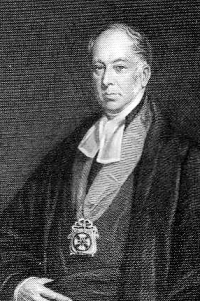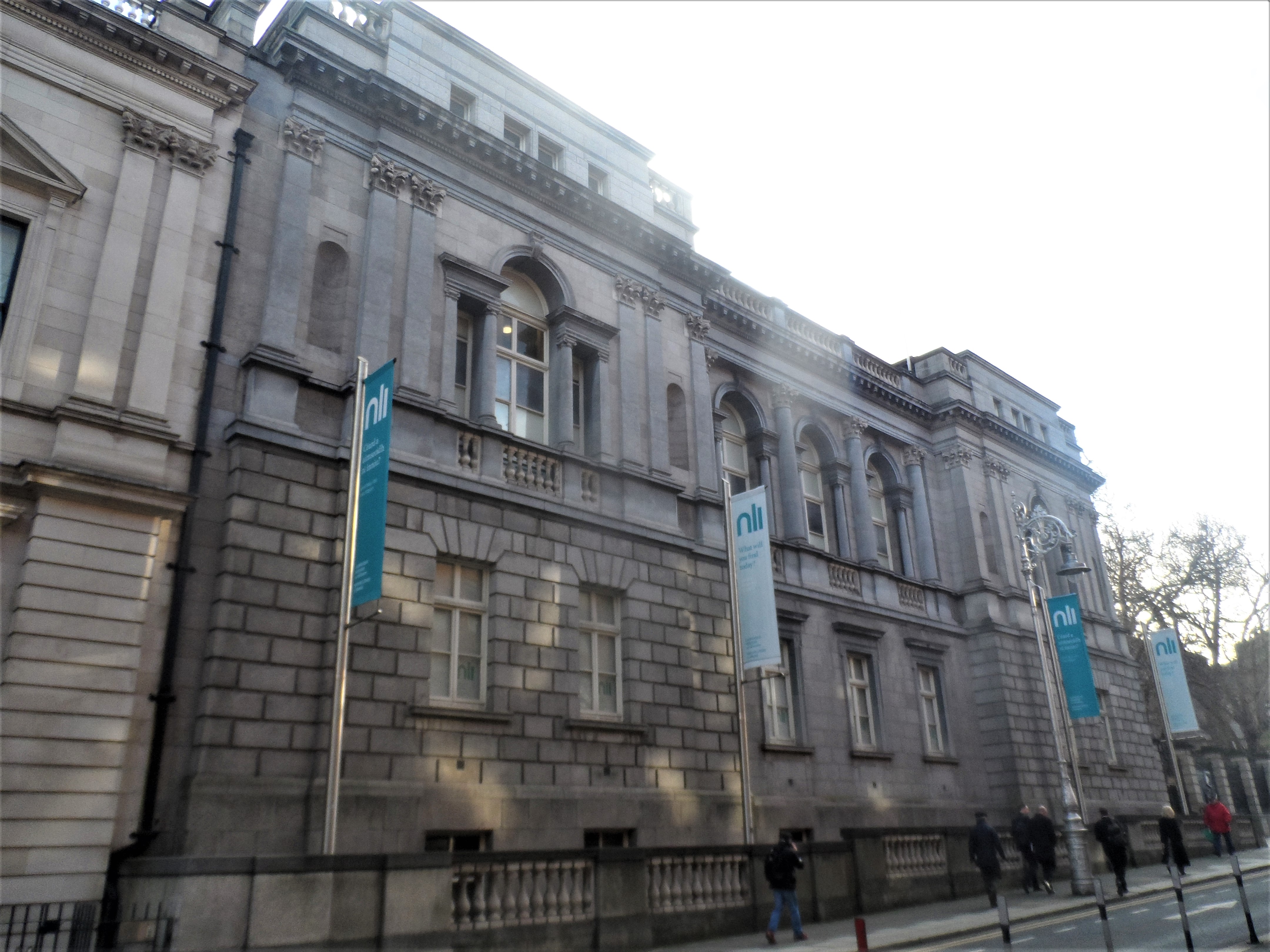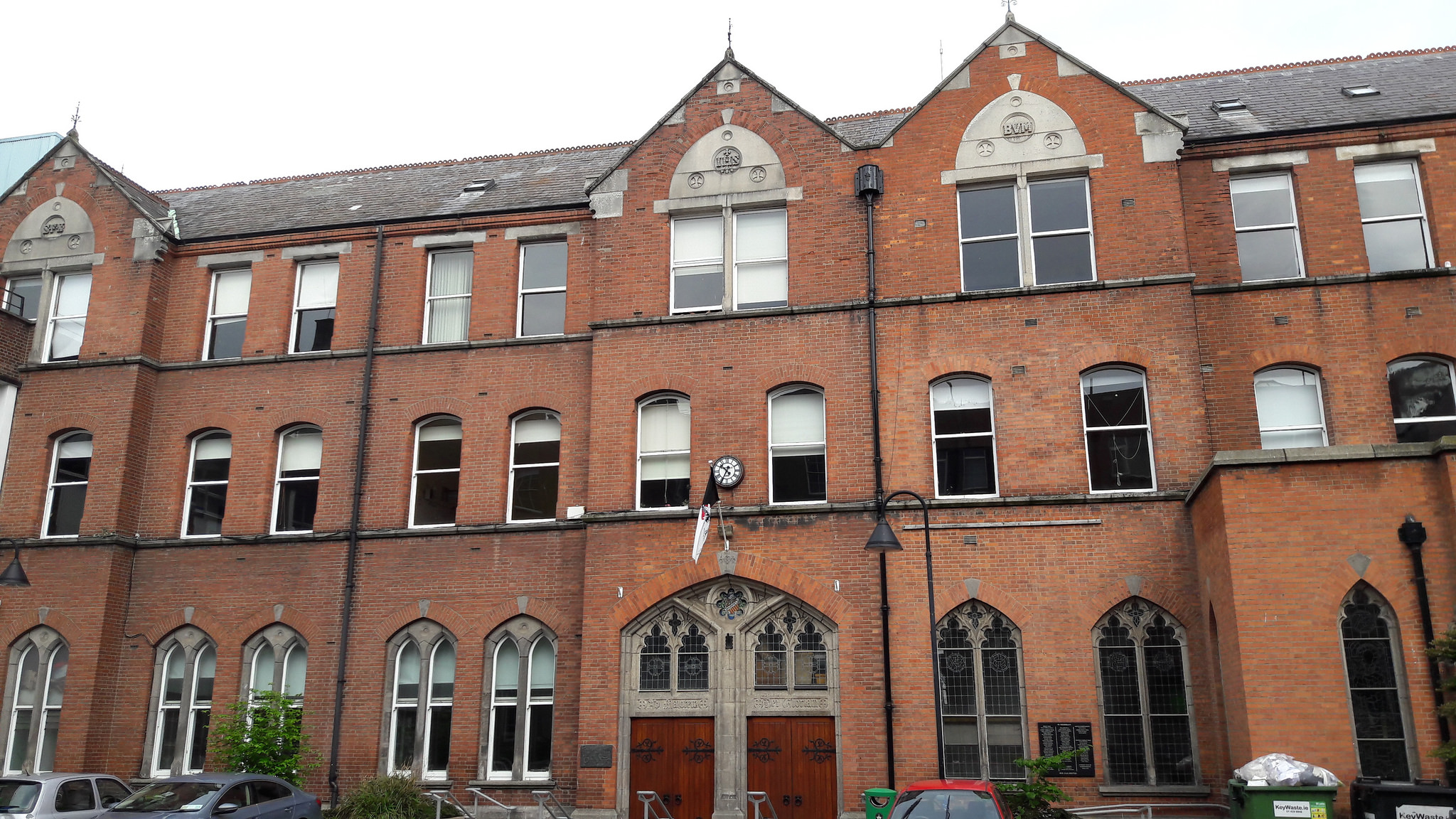|
Thomas A. Finlay
Thomas Aloysius Finlay, S.J. (1848 – 1940) was an Irish Catholic priest, economist, philosopher and editor. Early life He was born on 6 July 1848 near Lanesborough, the son of William Finlay, an engineer, and his wife Maria Magan; the politician Thomas Finlay, named after him, was his nephew. His father, who died in 1864, was from Fifeshire, a Protestant convert to Catholicism; his mother was a Catholic from County Cavan. Finlay was educated at St Augustine's College, Cavan, and became a novice of the Society of Jesus in 1866, at the Jesuit theological faculty, Milltown Park, Dublin. He took vows in 1868. He then spent time in Saint-Acheul, France, the Gregorian University, Rome. Moved on because of capture of Rome of the Risorgimento, he was sent to Maria Laach Abbey, in Germany. There he encountered Prussian agricultural methods and the Raiffeisenbank system; and gained an interest in biology from colleagues. He returned to Ireland in 1873. From 1873 to 1876, Finla ... [...More Info...] [...Related Items...] OR: [Wikipedia] [Google] [Baidu] |
Ireland
Ireland ( ; ga, Éire ; Ulster Scots dialect, Ulster-Scots: ) is an island in the Atlantic Ocean, North Atlantic Ocean, in Northwestern Europe, north-western Europe. It is separated from Great Britain to its east by the North Channel (Great Britain and Ireland), North Channel, the Irish Sea, and St George's Channel. Ireland is the List of islands of the British Isles, second-largest island of the British Isles, the List of European islands by area, third-largest in Europe, and the List of islands by area, twentieth-largest on Earth. Geopolitically, Ireland is divided between the Republic of Ireland (officially Names of the Irish state, named Ireland), which covers five-sixths of the island, and Northern Ireland, which is part of the United Kingdom. As of 2022, the Irish population analysis, population of the entire island is just over 7 million, with 5.1 million living in the Republic of Ireland and 1.9 million in Northern Ireland, ranking it the List of European islan ... [...More Info...] [...Related Items...] OR: [Wikipedia] [Google] [Baidu] |
St Beuno's College
St Beuno's Jesuit Spirituality Centre, known locally as St Beuno's College, is a spirituality and retreat centre in Tremeirchion, Denbighshire, Wales. It was built in 1847 by the Jesuits, as a theology college. During the 1870s the Victorian poet Gerard Manley Hopkins studied there. Since 1980, it has been a spirituality and retreat centre. Standing on the Clwydian Range, the front of the building faces west towards Snowdonia and overlooks the Vale of Clwyd. The building became a Grade II* listed building and a Welsh Historic Monument in 2002. History Foundation In 1832, Following the Act of Catholic Emancipation of 1829, the Jesuits came to North Wales and founded St Winefride's Church in nearby Holywell, Flintshire. In 1846, Fr Randal Lythgoe, the Provincial of the Jesuits in Britain, visited Holywell and toured the neighbouring area. When he came to Tremeirchion, to see farm land which the Jesuits owned, he quickly resolved that this should be the site for a new college to tra ... [...More Info...] [...Related Items...] OR: [Wikipedia] [Google] [Baidu] |
Statistical And Social Inquiry Society Of Ireland
The Statistical and Social Inquiry Society of Ireland (SSISI) is a learned society which analyses the major changes that have taken place in population, employment, legal and administrative systems and social services in Ireland. It operates as an all-Ireland body. The Society was founded in Dublin in 1847 by a group of Irish academics, clergymen, aristocrats and politicians. Its first president was Richard Whately. From its establishment until the 1920s the overwhelming majority of members were Unionists of the Anglo-Irish class, who were, generally speaking, more sympathetic to the British administration in Ireland than with the Irish Home Rule movement. As a result, most papers read to the Society until at least 1870 were in favour of assimilating the laws and practices in Ireland to those applying in England and Wales. Even so, official political or religious endorsement has never been allowed in the Society. During the nineteenth century it frequently provided an important ... [...More Info...] [...Related Items...] OR: [Wikipedia] [Google] [Baidu] |
National Library Of Ireland
The National Library of Ireland (NLI; ga, Leabharlann Náisiúnta na hÉireann) is the Republic of Ireland's national library located in Dublin, in a building designed by Thomas Newenham Deane. The mission of the National Library of Ireland is 'To collect, preserve, promote and make accessible the documentary and intellectual record of the life of Ireland and to contribute to the provision of access to the larger universe of recorded knowledge.' The library is a reference library and, as such, does not lend. It has a large quantity of Irish and Irish-related material which can be consulted without charge; this includes books, maps, manuscripts, music, newspapers, periodicals and photographs. Included in their collections is material issued by private as well as government publishers. The Chief Herald of Ireland and National Photographic Archive are attached to the library. The library holds Art exhibition, exhibitions and holds an archive of List of Irish newspapers, Irish ne ... [...More Info...] [...Related Items...] OR: [Wikipedia] [Google] [Baidu] |
Irish Agricultural Organisation Society
The Irish Agricultural Organisation Society (IAOS) was an agricultural association in Ireland which advocated, and helped to organise, agricultural cooperativism, including mutual credit facilities. From its establishment by Sir Horace Plunkett in 1894, it quickly became an important element of the Irish economy and laid the foundations of the successful Irish dairy industry. Although officially apolitical, the IAOS became associated with the Irish Home Rule movement and Irish nationalist activity from the early 20th century. It was later reorganised, and renamed as the Irish Co-operative Organisation Society Limited, a body which continues to operate in Ireland. Foundation The Irish Agricultural Organisation Society (IAOS) was founded in 1894 by Sir Horace Plunkett, an Anglo-Irish politician with a keen interest in agriculture and rural affairs. He had established a cooperative on his family estate at Dunsany as early as 1878. Other key figures involved in setting up the IAOS ... [...More Info...] [...Related Items...] OR: [Wikipedia] [Google] [Baidu] |
Horace Plunkett
Sir Horace Curzon Plunkett (24 October 1854 – 26 March 1932), was an Anglo-Irish agricultural reformer, pioneer of agricultural cooperatives, Unionist MP, supporter of Home Rule, Irish Senator and author. Plunkett, a younger brother of John Plunkett, 17th Baron of Dunsany, was a member of the Congested Districts Board for Ireland for over 27 years, founder of the Recess Committee and the Irish Agricultural Organisation Society (IAOS), vice-president (operational head) of the Department of Agriculture and Technical Instruction (DATI) for Ireland (predecessor to the Department of Agriculture) from October 1899 to May 1907, Unionist MP for South Dublin in the House of Commons of the United Kingdom from 1892 to 1900, and Chairman of the Irish Convention of 1917–18. An adherent of Home Rule, in 1919 he founded the Irish Dominion League, still aiming to keep Ireland united, and in 1922 he became a member of the first formation of Seanad Éireann, the upper chamber in the Parl ... [...More Info...] [...Related Items...] OR: [Wikipedia] [Google] [Baidu] |
Auditors Of The Literary And Historical Society (University College Dublin)
The Auditor of the Literary and Historical Society at University College Dublin, Ireland is a position elected by the members of the society. In this setting, the term auditor has no connection with accounting but means "a position corresponding to that of President of the Union at Oxford or Cambridge" (Oxford English Dictionary). Some former auditors of the society have gone on to careers of high distinction in law, politics, medicine, academia, journalism, and other endeavours. This is a list of the auditors from when the society was founded by John Henry Newman in 1855 to the present: * 1856–1857 Henry S. Bethell * 1857–1858 Augustus P. Bethell * 1858–1859 Hugh Hyacinth MacDermot * 1859–1860 Richard Fennelly * 1861–1862 Philip Farrelly * 1862–1863 John Kean * 1863–1864 John Butler * 1864–1865 Morgan B. Kavanagh * 1865–1866 Robert Wogan MacDonne ... [...More Info...] [...Related Items...] OR: [Wikipedia] [Google] [Baidu] |
Belvedere College
Belvedere College S.J. (sometimes St Francis Xavier's College) is a voluntary secondary school for boys in Dublin, Ireland. The school has numerous alumni in the arts, politics, sports, science, and business. History Belvedere owes its origins to the efforts of John Austin who opened primary and secondary schools off Fishamble Street in 1750. The Society of Jesus has been active in the area around Hardwicke Street since 1790. They founded St Francis Xavier's College in the disused Poor Clare convent on Hardwicke Street with nine students in 1832, three years after Catholic emancipation. In 1841, the Jesuits purchased Belvedere House on neighbouring Great Denmark Street, which gave the school its name. George Augustus Rochfort (1738–1814), who became the second Earl of Belvedere in 1774, built Belvedere House, whose interior decoration was carried out by Michael Stapleton, a leading stucco craftsman of his time. Belvedere was caught up in the events of the 1916 Rising, w ... [...More Info...] [...Related Items...] OR: [Wikipedia] [Google] [Baidu] |
Henry Neville (Rector)
Henry Francis Neville (1822 – 15 December 1889) was an Irish Roman Catholic priest and educator who served as Rector of the Catholic University of Ireland and Dean of Cork. Neville was educated for the priesthood at St. Patrick's College, Maynooth, where he was ordained on 29 May 1847. He was to join the teaching staff at the college, in 1850 becoming the Professor of Philosophy and in 1852 Professor of Theology until 1867 when he retired from Maynooth on health grounds, becoming a Parish priest in Monkstown and Passage West, Co. Cork. During his time in Monkstown, Neville was responsible for the building of the Church of the Most Sacred Hearts of Jesus and Mary. He was also awarded the title of Canon. He provided advice to a number of Irish Bishops at the Vatican Council. He also published his response to William Ewart Gladstone, in ''A few Comments on Mr. Gladstone's Expostulation'' in 1875. In 1879, Neville, Dean of Cork was appointed (succeeding Dr Bartholomew Woodlock) ... [...More Info...] [...Related Items...] OR: [Wikipedia] [Google] [Baidu] |
William Delany (Jesuit)
Rev. William Delany (1835–1924), S.J., LL.D. (R.U.I.), was an Irish Jesuit priest and educationalist, who served as President of University College Dublin. Life Delany was born in 1835 in Leighlinbridge, Co. Carlow and received his early education in St. Patrick's, Carlow College before going on to Maynooth College he pursued further studies in the Gregorian University, Rome. In 1856 he entered the Jesuits at St. Acheul, near Amiens in France. He returned to Ireland and taught classics and mathematics at the Jesuit Clongowes Wood College and St Stanislaus College(Tullabeg), and was Rector of Crescent College in Limerick. He returned to the jesuit St Stanislaus College, Tullabeg(Rahan), Co. Offaly, as master of novices and prepared them for BA examinations to the University of London similar to Carlow and Thurles Seminaries, with the establishment of the Royal University students were prepared for its examinations instead. He became rector of Tullabeg in 1870. He also served a ... [...More Info...] [...Related Items...] OR: [Wikipedia] [Google] [Baidu] |
St Stanislaus College
St Stanislaus College (often called Tullabeg College) was a Jesuit boys boarding school, novitiate and philosophy school, in Tullabeg, Rahan, County Offaly. St Carthage founded a monastery of 800 monks there in 595 before founding his monastery in Lismore. The Presentation Sisters also have a convent in Rahan, Killina, which was founded at the same time (circa 1818) as the Jesuits founded St Stanislaus College. Jesuits in Tullabeg St Stanislaus College was founded as a boarding school for boys under the age of thirteen in 1818. It was endowed by the O'Briens, a local gentry family (Killina - also donated lands for presentation convent and school in Killina), and was intended to cater for upper middle class Catholics, as was the sister college at Clongowes Wood College where most of its pupils would graduate to. The lands were leased to Charles Aylmer from Maria O'Brien permanently. In the 1850s, the school was enlarged to take older boys. water polo was played at the school, t ... [...More Info...] [...Related Items...] OR: [Wikipedia] [Google] [Baidu] |




